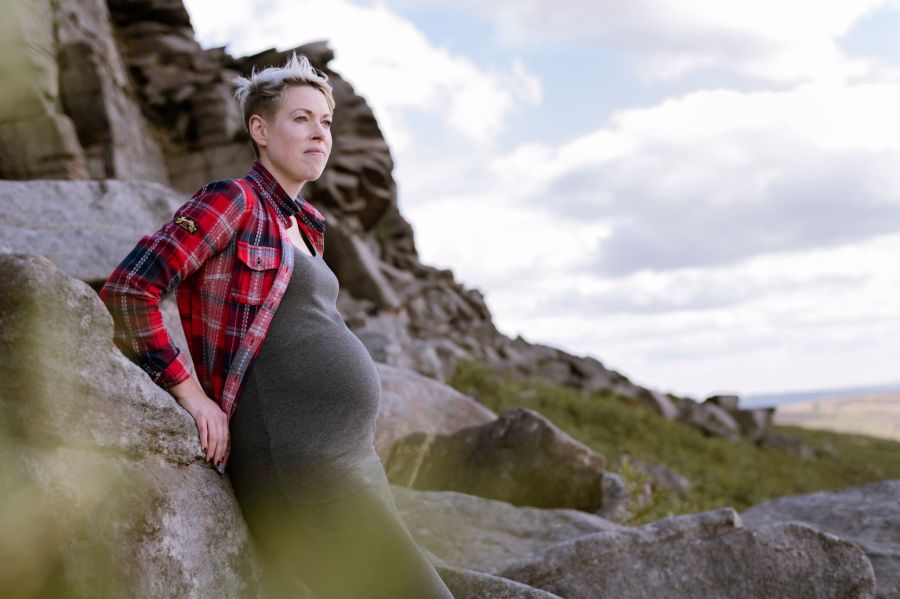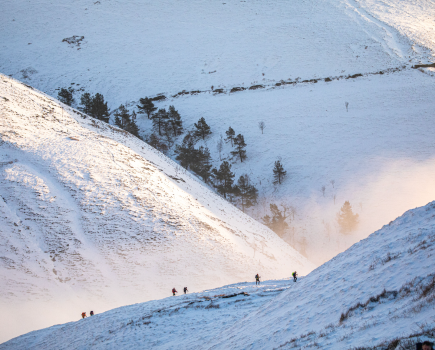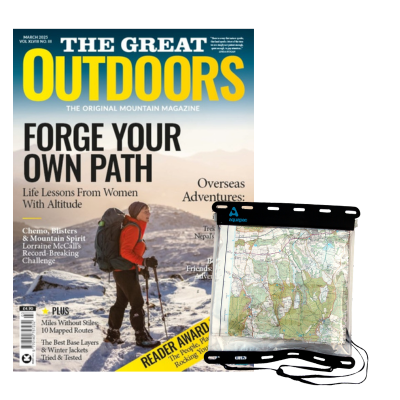In her upcoming book, A Line Above the Sky, Helen Mort explores mountaineering, wildness and risk through the lens of motherhood. Hanna Lindon talks to her about landscape, legacy, and why even the toughest mountaineering expedition can’t compare to labour.
In 2019, when her first son was two months old, Helen Mort heard about the death of Tom Ballard on Pakistani peak Nanga Parbat. Twenty-four years earlier, Tom’s mother Alison Hargreaves had lost her life on nearby K2.
To understand why the news of Tom’s death affected her so profoundly, Helen embarked on a new book: A Line Above the Sky: On Mountains and Motherhood. Part biography, part memoir, part ode to the landscapes she walks, runs and climbs in, it’s a poetic exploration of both the joy and fearfulness of sharing the mountains with your children. Hanna Lindon spoke to Helen to find out more.
What motivated you to write A Line Above the Sky?
I’ve always really admired Alison Hargreaves. She’s been a bit of a hero of mine since I started climbing and walking, not least because she’s from the same part of the world as me. I always really related to the way she wrote and talked about climbing. What motivated me to start A Line Above the Sky was the death of Tom Ballard, her son, in 2019. I heard the news in the middle of the night when I was up feeding my then-two-month-old son, and I was really affected by it in a way that seemed disproportionate given that I didn’t know these people personally. I began wondering why I felt so upset and suddenly realised that I was imagining my own son in that position. It had never properly sunk in before that this risk might go alongside my wanting to share the hills with him. Suddenly, an awareness of a particular type of conflict arose that I’d only ever thought of in the abstract before. I wanted to explore both the joy and the fearfulness of mountains in families, and that in turn was a way of exploring the general fearfulness of being a mother.
Did becoming a mother change your attitude towards climbing and adventure then?
It’s just raised more questions for me. I’m so excited about the idea of going to places with my son and of him climbing. I think it’s great to be able to pass that on to your child. I never imagined I could be happier watching someone else climbing than I could be climbing myself. But even now I’m just taking him to Burbage Edge or the local climbing wall, it’s such a wonderful thing to see him climbing. For myself I’ve never been that ambitious. Now, though, I dawdle a lot more, take my time and experience the places I love slightly differently.
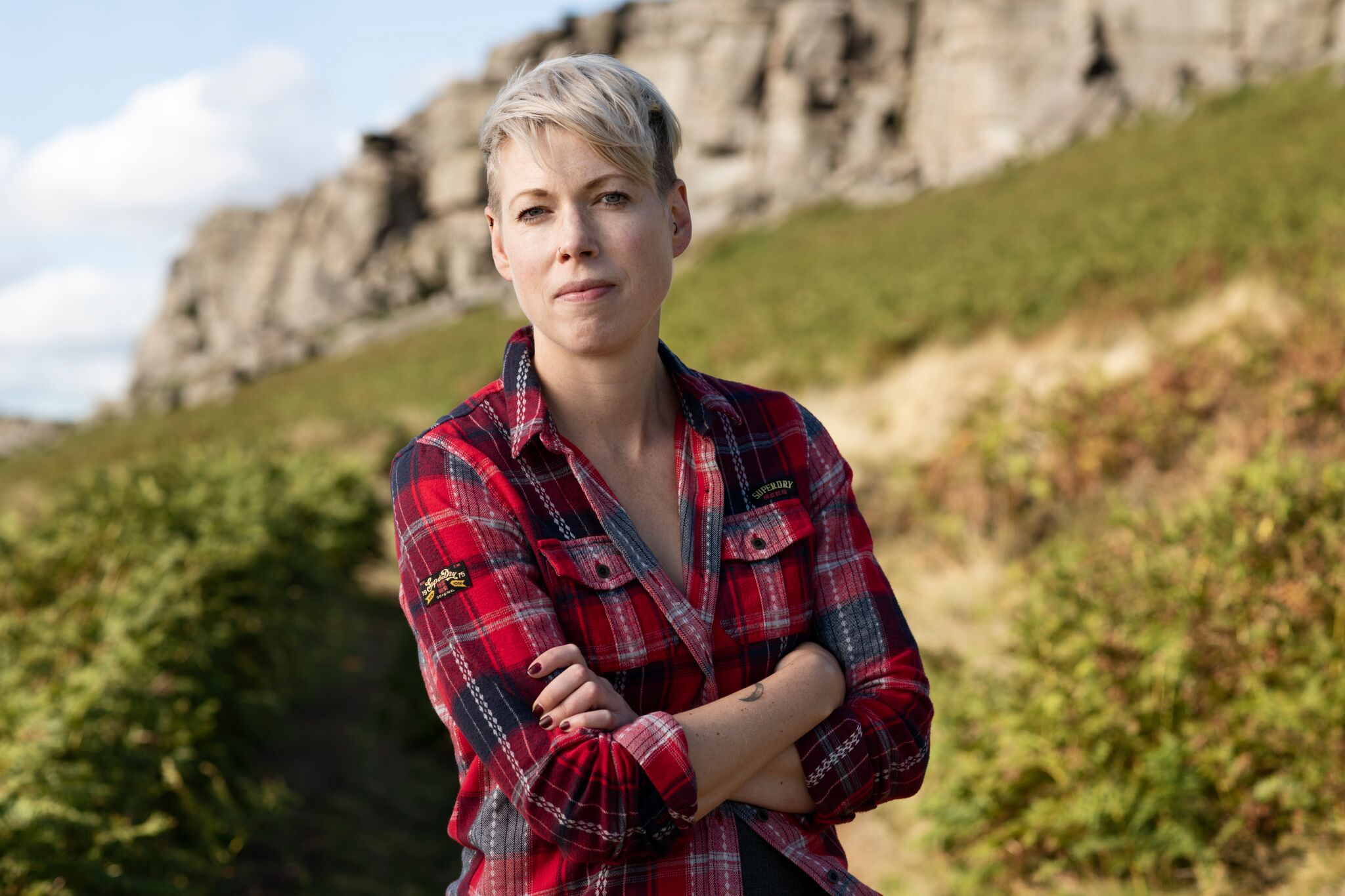
Helen at Stanage Edge. “I can’t stop writing about Derbyshire, in particular, and about grit”
How does landscape feed into the book’s narrative?
I can’t stop writing about Derbyshire, in particular, and about grit. The book is located mainly in the Lake District and the Peak District, as well as various other places around the world. It’s also about the way that our perceptions of landscape can change with different times and outlooks. I talk a bit about postnatal depression and how that can make the landscape look physiologically different.
Was postnatal depression something you experienced yourself?
I thought not. I was convinced I was going to get it, and relieved when I thought I’d survived those first few weeks unscathed. But then I was very affected by weaning. I stopped breastfeeding quite abruptly when [my son] was about six months old because he decided he really liked food and the hormonal effect of that was staggering – it made me very much not myself. But even before that I’d felt very anxious about everything, and I realised that was what my mother had experienced.
A Line Above the Sky traces these links between different women of different times and places, including Alison Hargreaves. She wrote in her journals that, with young kids, she always felt she was in the wrong place. “It eats away at me, wanting the children and wanting K2”. That feeling – that you’re not where you should be as a mother no matter where you are – is universal among all women who juggle motherhood alongside their other passions.
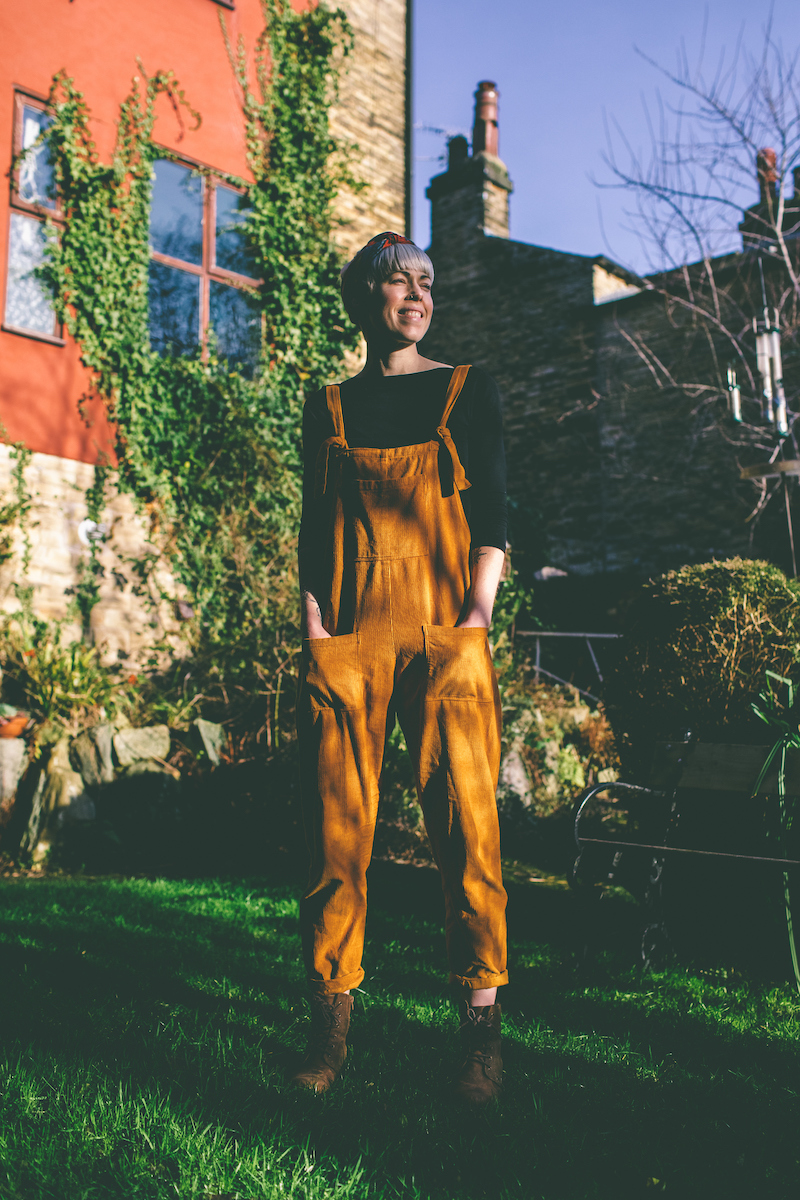
Helen in her home city of Sheffield
You’ve explored that idea of feeling torn between motherhood and the mountains. But do you think being in the outdoors can also help you to deal with postnatal depression and some of the huge emotions that come alongside being a new parent?
Yes, and also setting yourselves just little challenges. When my son was really little I’d go to Stanage for a walk with him and I’d get almost paralysed by anxiety over different things – it’s too cold, it’s too this, it’s too that. Every time I went out, I’d make myself walk just a little bit further. Continuing to get out and exercise was also so important for my mental health. I remember vividly a point just after I stopped breastfeeding when all my limbs started working better because I didn’t have all these hormones rushing round my body. Running suddenly felt easier, and it felt like that was just what I needed.
Did you find yourself drawing parallels between climbing and motherhood in the book?
Definitely. At one point I got obsessed with the idea of the line – the line is the pregnancy test, the umbilical cord, the line of the rope. The book opens with a fairly graphic description of labour. It talks about having gas and air, and enjoying it because it felt like being a high-altitude mountaineer on oxygen.
There’s that mental and physical strength required of you, but there’s also the fear. I wanted to explore how fear operates both in the mountains and in motherhood. Fear and joy – they are both there, dancing around one another. And there’s another obvious comparison too. When I think back to the most amazing things I’ve done in my life – like being in Greenland, crossing glaciers and crevasses – I really romanticise it. But if you put me back in that day now, I’d feel grumpy, exhausted, a bit frayed. It was worth it, of course. That’s similar to the glorious early days of having a small child. It’s wonderful, but also really boring!
You mentioned comparing high-altitude mountaineering to labour. Would you say that labour is harder than any expedition you’ve ever been on?
Yes, definitely! Because a lot of my sporting background was in marathon running, I thought labour was like running a marathon. And I remember thinking at the time: it’s so much worse than that!
A Line Above the Sky: On Mountains and Motherhood by Helen Mort (Ebury Press, £16.99) hits the shelves on March 24. Find pre-order information at www.penguin.co.uk.

